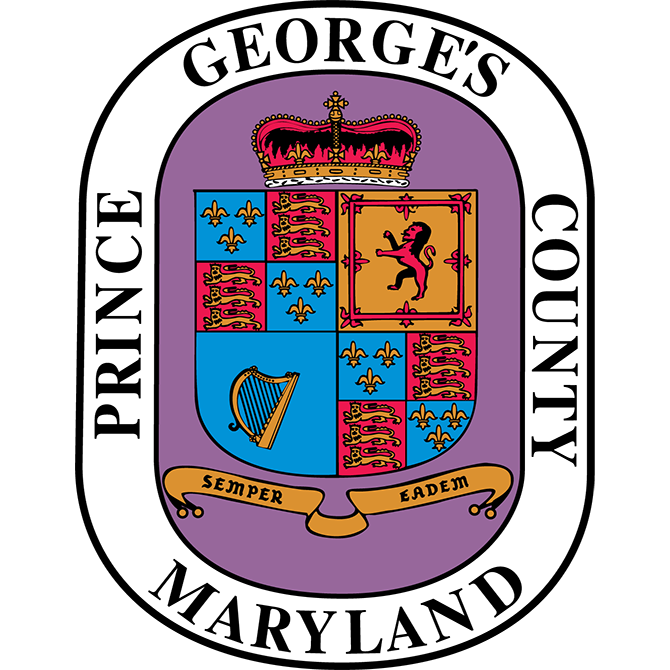-
Sec. 10-235.06. – Energy Conservation Real Property Tax Credit.
(a)
In accordance with the provisions of Section 9-203 of the Tax-Property Article of the Annotated Code of Maryland, there is a tax credit against the property tax imposed on real property on a residential structure that utilizes a solar energy or geothermal energy device whether such device is owned by a homeowner, leased or financed through a Solar Power Purchase Agreement.
(b)
For the purposes of this section, the following terms have the meanings:
(1)
“Solar Energy Device” means an energy conservation device that:
(i)
uses solar energy to heat or cool a structure, to generate electricity to be used in the structure, or provide hot water for use in the structure; and
(ii)
meets national safety and performance standards set by a nationally recognized testing laboratory for that kind of device.
(2)
“Geothermal Energy Device” means an energy conserving device that:
(i)
uses geothermal energy to heat or cool a structure or to provide hot water for use in the structure; and
(ii)
meets national safety and performance standards set by a nationally recognized testing laboratory for that kind of device.
(3)
“Eligible Costs” means those that are incurred:
(i)
within the 12 months before the initial application for the credit; and
(ii)
for costs, including up front costs for the solar energy or geothermal energy device, including any parts, component, or accessory equipment necessary to operate the device, and reasonable costs associated with installing the device.
(4)
“Solar Power Purchase Agreement” means a financial arrangement in which a third-party developer owns, operates, and maintains the photovoltaic (PV) system, and a host customer agrees to site the system on its roof or elsewhere on its property and purchases the system’s electric output from the solar services provider for a predetermined period. A taxpayer with a Solar Power Purchase Agreement or other type of leasing agreement is eligible for a tax credit under this section. An executed copy of the lease or power purchase agreement shall be provided to the Office of Finance as part of the energy conservation real property tax credit application.
(c)
The tax credit under this section for solar or geothermal system purchases is the lesser of
(1)
50% of eligible costs; or
(2)
$5,000 for a heating system or $1,500 for a hot water supply system.
(3)
During the fiscal year, tax credits granted under Subsection 10-235.06(c) shall not exceed $500,000.
(d)
The tax credit under this section for leases or solar power purchase agreements is the lesser of:
(1)
50% of eligible costs; or
(2)
$1,000, and shall not exceed the cost of the system.
(3)
During the fiscal year, tax credits granted under Subsection 10-235.06(c) for lease arrangements or solar power purchase agreements shall not exceed $100,000. The tax credit under Subsection 10-235.06(d) applies solely to solar energy devices installed after January 1, 2013.
(e)
No more than one tax credit under this Section shall be granted per residential household per tax year.
(f)
Tax credits shall be granted in the order in which the Office of Finance receives the complete application under subsection (h) of the section. If a complete application granted would cause the limit set in this subsection to be exceeded, the tax credit shall be granted in the next fiscal year or years and in the order received.
(g)
The amount of the tax credit applied in any tax year may not exceed the amount of the County property tax imposed on the property in that tax year. Any amount of the credit not taken in the tax year in which the application was granted may be carried over for an additional two years.
(h)
Application for the tax credit established herein shall be made under oath on an application provided by the Director of Finance. The application shall provide a legal description of the property, proof of a properly installed solar energy or geothermal energy device, and such other information or documentation as the Director may require to determine whether the applicant can qualify for the tax credit.
(i)
The Director of Finance shall determine the eligibility of the taxpayer for the tax credit and notify the State Department of Assessments and Taxation that a taxpayer has been approved for the property tax credit and the assessed value of the premises.
(j)
The Director of Finance shall provide an annual report to the County Council on the energy conservation real property tax credit on or before December 31st of each year for the previous fiscal year, which will show the location by Councilmanic District and include the following:
(1)
the number of applications received;
(2)
the number of applications denied;
(3)
the amount of tax credits approved; and
(4)
the amount of tax credits carried over.
(CB-11-2008; CB-5-2009; CB-77-2012; CB-28-2019)
Renewable HVAC
According the the Department of Energy, geothermal heat pumps (GHPs), sometimes referred to as GeoExchange, earth-coupled, ground-source, or water-source heat pumps, have been in use since the late 1940s. They use the constant temperature of the earth as the exchange medium instead of the outside air temperature
Geothermal Heating & Cooling (GHC) systems convert stored thermal energy in the earth to heating and cooling for homes and businesses. The systems require use of drilled wells, piping loops, and efficient heat pumps to transfer heat between the wells and a home or business.
- In the winter, the GHC system pulls heat from the earth into the house or building;
- In the summer, the system removes heat from the house or building by dumping it into the ground; and
- Year-round, they can heat water with a desuperheater, a secondary heat exchanger, that transfers heat from the earth in the winter, and from your home in the summer, into your domestic hot water tank.
GHC systems are the most energy-efficient, environmentally clean, and cost-effective space conditioning systems available, according to the Environmental Protection Agency.1 EPA found that
GHC systems can reduce energy consumption by over 40% compared to air source heat pumps, and by over 70% compared to electric resistance heating with standard air-conditioning equipment. EPA also found that GHC systems are 48% more efficient than the best gas furnaces on a source fuel basis, and over 75% more efficient than oil furnaces.
More information on types of geothermal heat pumps can be found here:
Prince George’s County Geothermal Renewable Energy Credits (RECs)
In 2012, Maryland became the first state in the country to make the energy generated by GHC technologies eligible for the Renewable Portfolio Standard (RPS) as a Tier 1 renewable source (HB 1186). GHC system owners are also eligible for Prince George’s County Geothermal Renewable Energy Credits (RECs), equivalent to 1 MegaWatt-hour (MWh) of electricity.
- More information can be found at PJM-EIS and also at Maryland Renewable Energy Portfolio Standard Program Frequently Asked Questions.
To qualify for RECs, the GHC technologies must:
- Meet ENERGY STAR standards (see Geothermal Heat Pumps Key Product Criteria website for more information),
- Displace electric or non-natural gas (NG) fossil fuel heating systems
- 29% of homes in the Mid-Atlantic region use electric/non-NG fossil fuel heating
- 46% of businesses in the Mid-Atlantic region use electric/non-NG fossil fuel heating
- Displace old and presumed inefficient air conditioning systems
- 44% of homes in the Mid-Atlantic region have AC units 10 years+ old
- 74% of businesses in the Mid-Atlantic region have AC units 10+ years old
Take the following steps to register your GHC system with the Maryland Public Service Commission and capture an additional revenue stream:
- Register for Prince George’s County Geothermal Renewable Energy Credits
- Fill out the Geothermal Renewable Energy Facility Application posted on the Public Service Commission website as an Excel spreadsheet. Detailed instructions for registering your RECs are located on the first tab of the geothermal application.
- For residential systems, the PSC will use the Climate Master Savings Calculator to estimate the quantity of RECs associated with your system.
- For commercial systems, you’ll need to enter the projected MWh’s from your installer’s engineering studies onto the Prince George’s County Geothermal Renewable Energy Credit application spreadsheet
- Send the completed spreadsheet to eap.division@maryland.gov
- Print, sign and file with the Commission a signed/verified original application and affidavit, along with 17 copies of the Application and supporting documents to:
- David J. Collins
Executive Secretary
Maryland Public Service Commission
6 Saint Paul St.
Baltimore, MD 21202
- David J. Collins
- Fill out the Geothermal Renewable Energy Facility Application posted on the Public Service Commission website as an Excel spreadsheet. Detailed instructions for registering your RECs are located on the first tab of the geothermal application.
- Sell your Prince George’s County Geothermal Renewable Energy Credits
- Information about selling Prince George’s County Geothermal Renewable Energy Credits can be found here, which includes information that includes:
- How the REC owner can advertise his credits on the GATS Bulletin Board or check-out the Buyer’s Bulletin Board for specific purchase requests.
- How the REC owner can use an aggregator or broker to either purchase the RECs directly, or to assist the REC owner in finding a buyer.
- Finally, the REC owner could use an auction or exchange platform to sell RECs.
- Information about selling Prince George’s County Geothermal Renewable Energy Credits can be found here, which includes information that includes:

Apply for a Geothermal Heat Pump Grant
Questions? Contact:
Clean Energy Program Manager Marta Tomic via email at marta.tomic@maryland.gov or telephone 410-260-2608.

